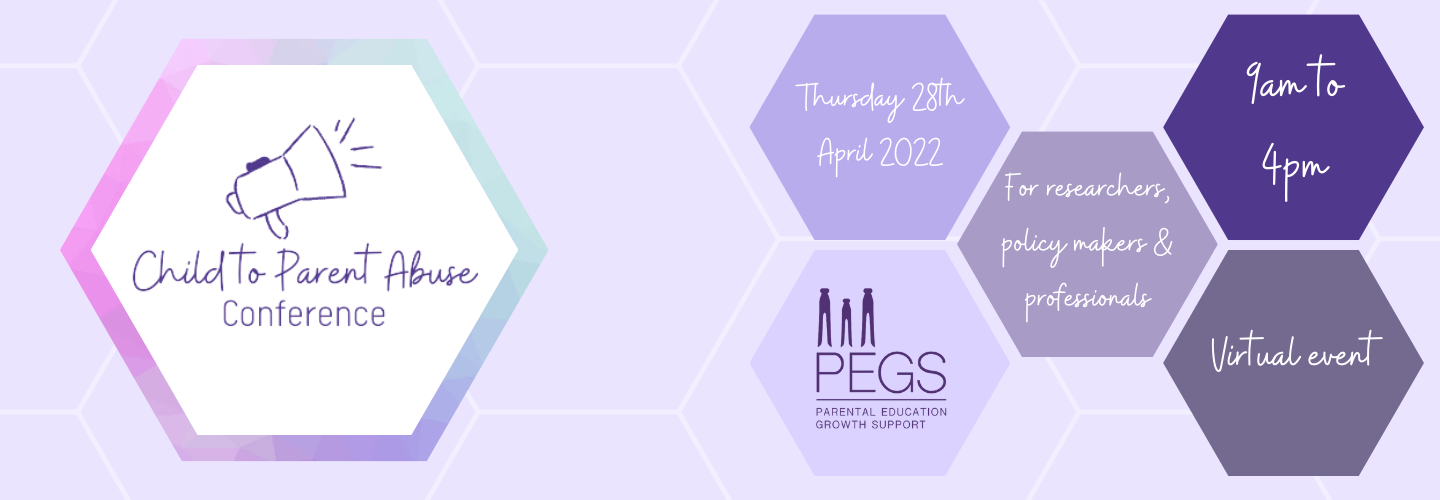The CPA Conference goes virtual - get your early bird code now!
The CPA Conference is now virtual - and early bird codes are up for grabs!

You may have heard about the Child to Parent Abuse Conference being hosted by PEGS.
With life still not fully back to normal and people still understandably cautious about large face-to-face events, we took the decision to move the event online, to enable everyone to attend safely and without worry.
The Conference will still be taking place at the same time, same date, and with the same fantastic line-up of speakers - and there are now early bird codes available until 18th March which will entitle you to almost 25% off the cost of a ticket.
Thursday 28th April | 9am to 4pm | Virtual Conference
The Child to Parent Abuse Conference will bring together researchers, policy-makers, decision-takers, frontline professionals and campaigners.
We'll share current knowledge, best practice and case studies, and focus on how we can collaboratively work to better support parents, carers and guardians impacted by Child to Parent Abuse.
Pre-register now to receive your early bird code.
Pre-registering before the 18th March ensures you receive an email as soon as booking goes live, so you won’t miss out on getting a ticket.
AND it means you’ll get a conference delegate bag.
AND, best of all, it entitles you to a fantastic discount of almost 25% on your ticket.
Simply click here and enter your details to get a code (via email) to use when you book your ticket, which will lower the cost from £65+VAT down to £50+VAT.
An entire £15 as a thank you from PEGS, just for letting us know you’re intending to attend.
Why attend?
A fantastic speaker line-up including representatives from:
The Department for Work and Pensions, Adoption UK, SafeLives, Youth Justice Board, Royal College of General Practitioners.
Domestic abuse partnership leaders, top academics and criminologists, practitioners, policy makers and more.
Networking with speakers, attendees, Q&A, interactive sessions and much more throughout the day.
Change is coming down the line - the voices of parents experiencing CPA will be heard.
Will you be part of that change? Will you help amplify those voices? Are you joining us to lead the way into the future?
Let's work together. Join PEGS, our speakers, sponsors, supporters and Conference attendees and shine a line on Child to Parent Abuse.
Pre-register now to receive your early bird code.





